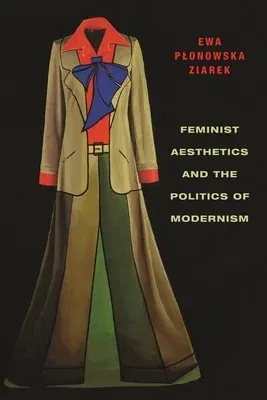Ewa Plonowska Ziarek
(Author)Feminist Aesthetics and the Politics of ModernismPaperback, 23 October 2012

Qty
1
Turbo
Ships in 2 - 3 days
In Stock
Free Delivery
Cash on Delivery
15 Days
Free Returns
Secure Checkout

Part of Series
Columbia Themes in Philosophy, Social Criticism, and the Art
Part of Series
Columbia Themes in Philosophy, Social Criticism, and the Arts
Print Length
288 pages
Language
English
Publisher
Columbia University Press
Date Published
23 Oct 2012
ISBN-10
0231161492
ISBN-13
9780231161497
Description
Product Details
Author:
Book Format:
Paperback
Country of Origin:
US
Date Published:
23 October 2012
Dimensions:
22.61 x
14.99 x
1.52 cm
ISBN-10:
0231161492
ISBN-13:
9780231161497
Language:
English
Location:
New York
Pages:
288
Publisher:
Series:
Weight:
385.55 gm